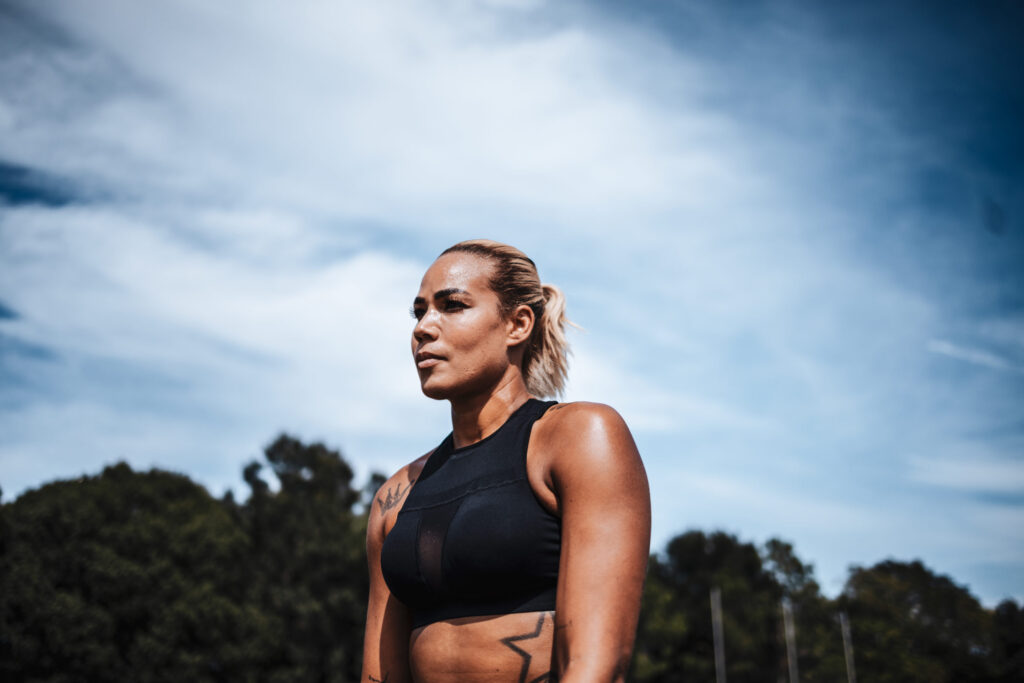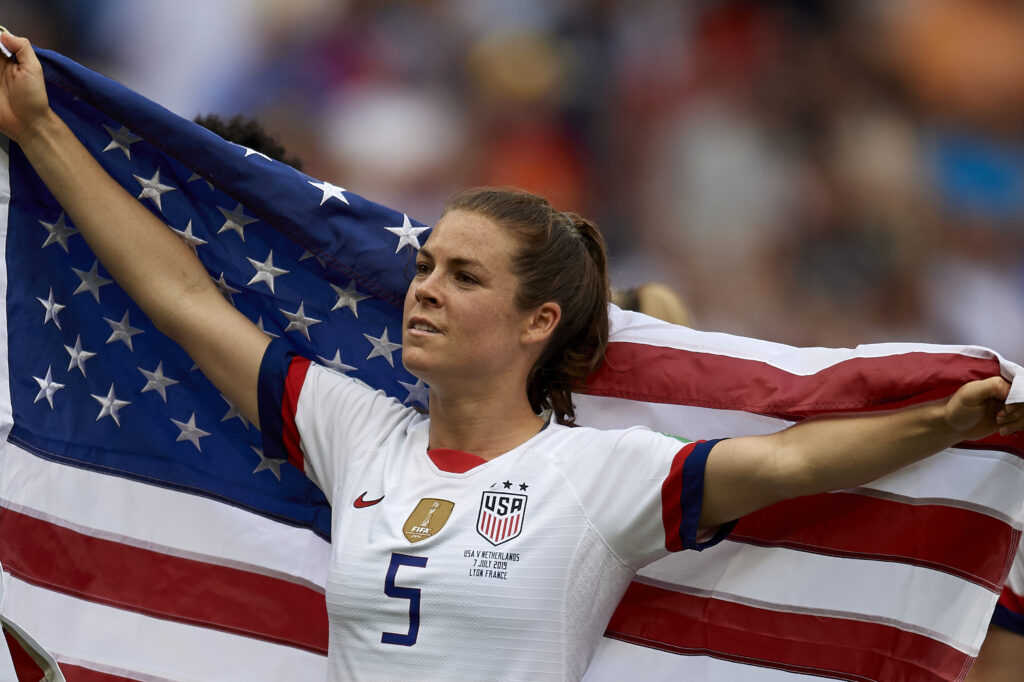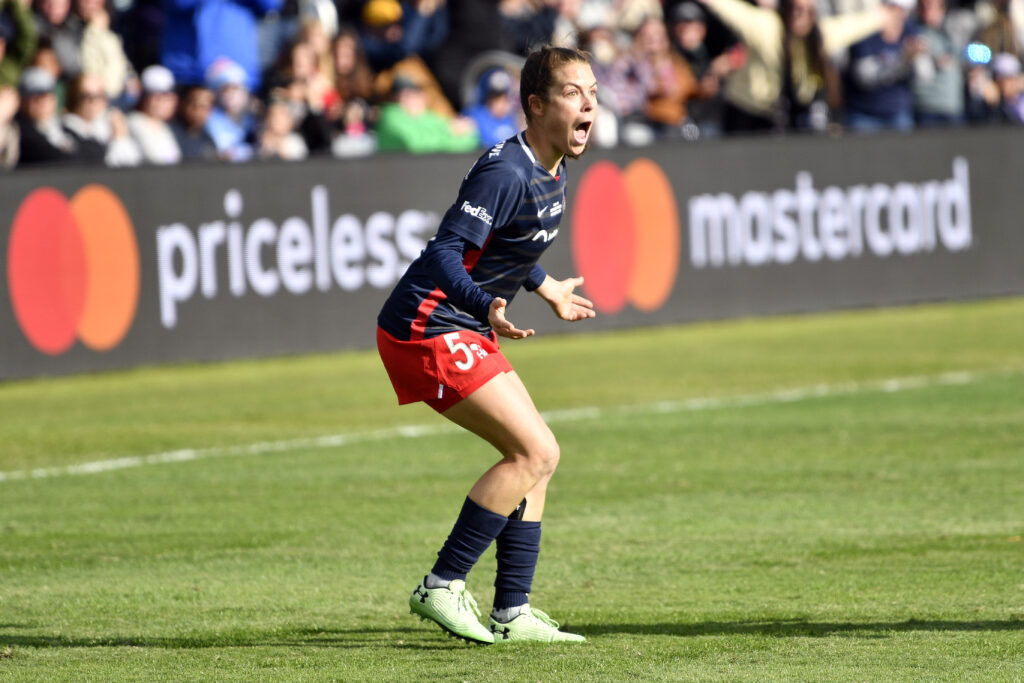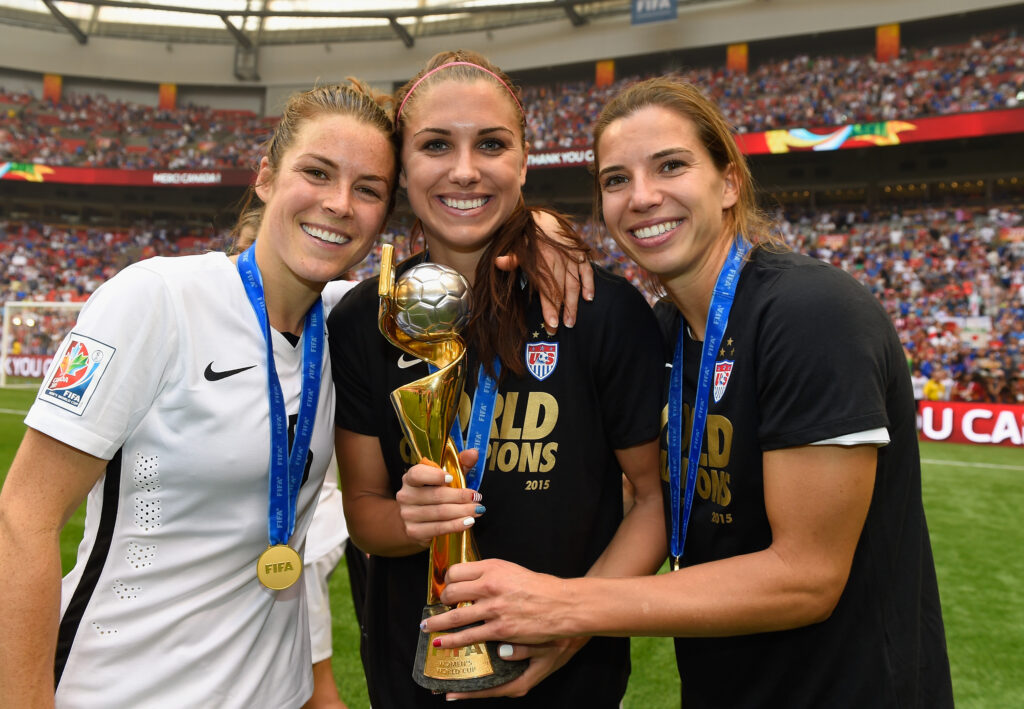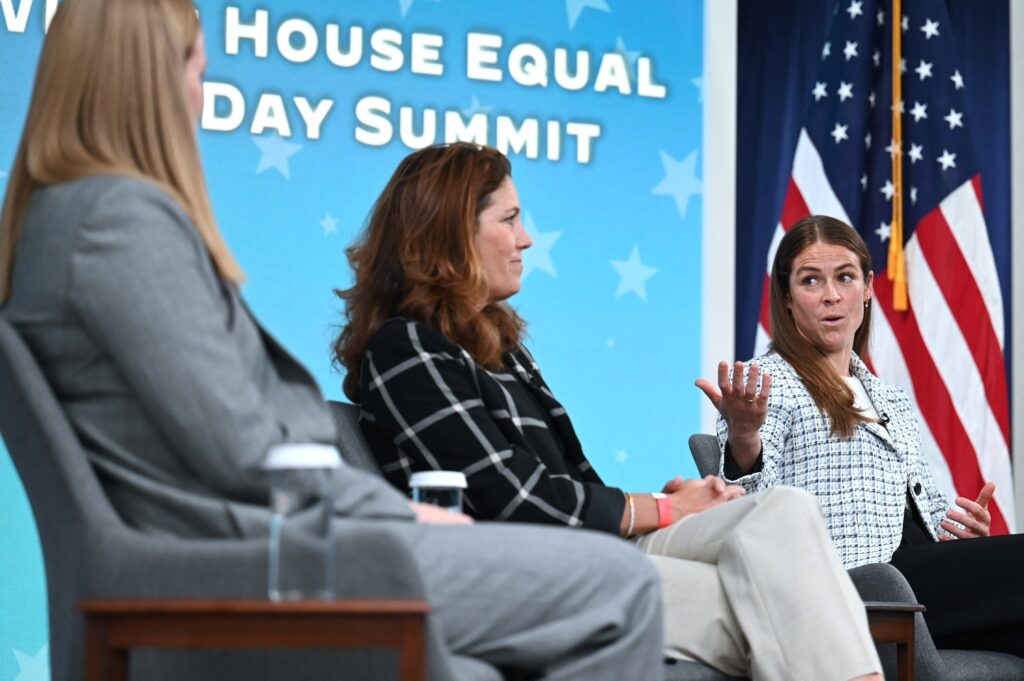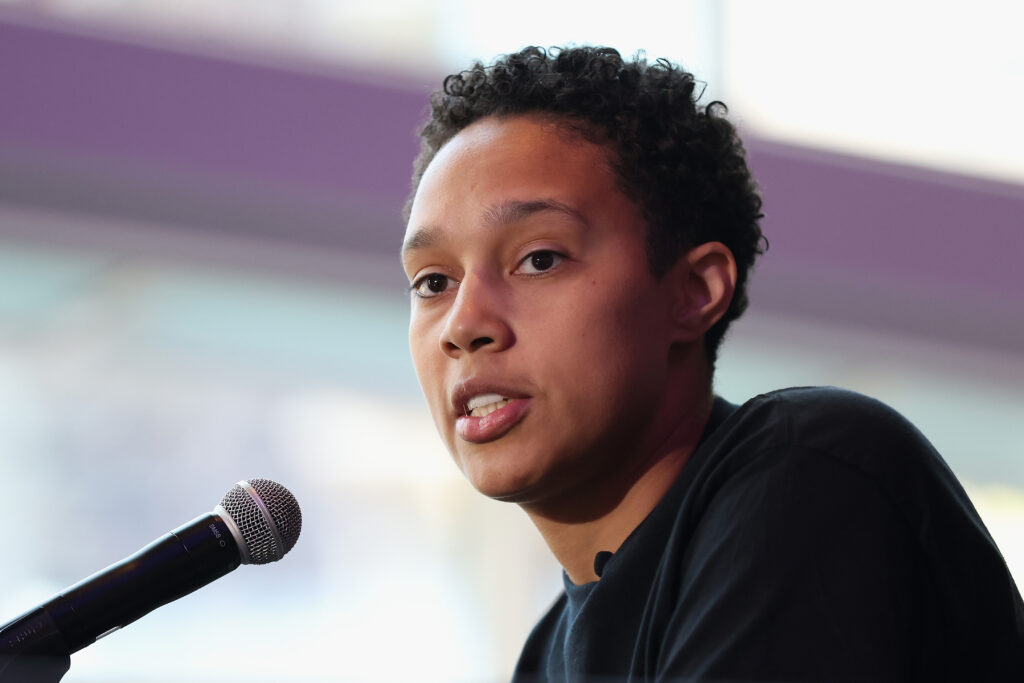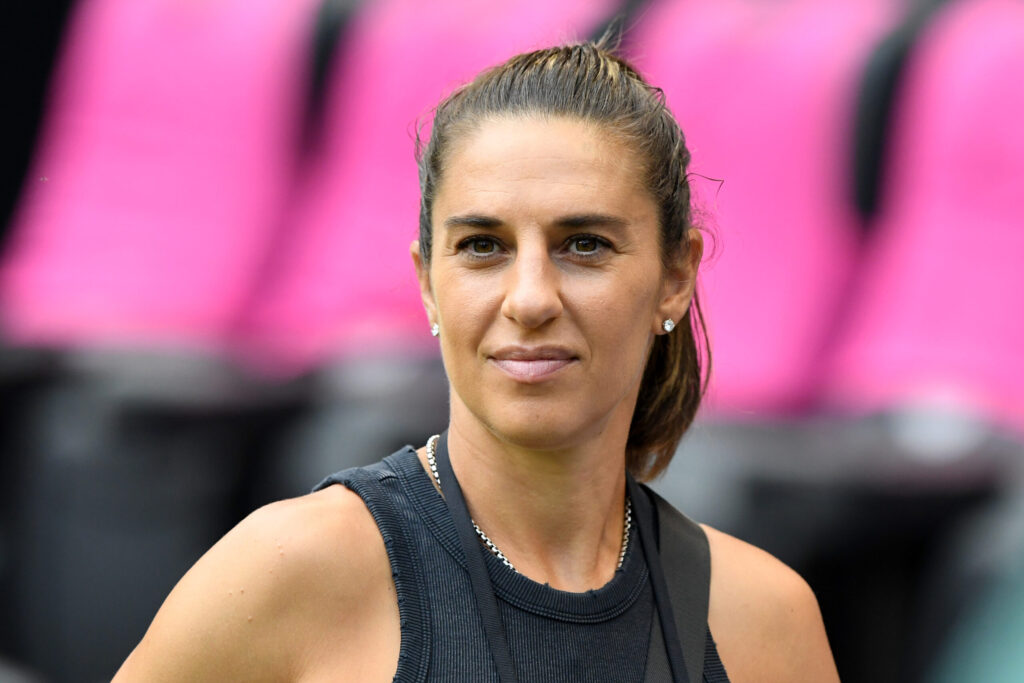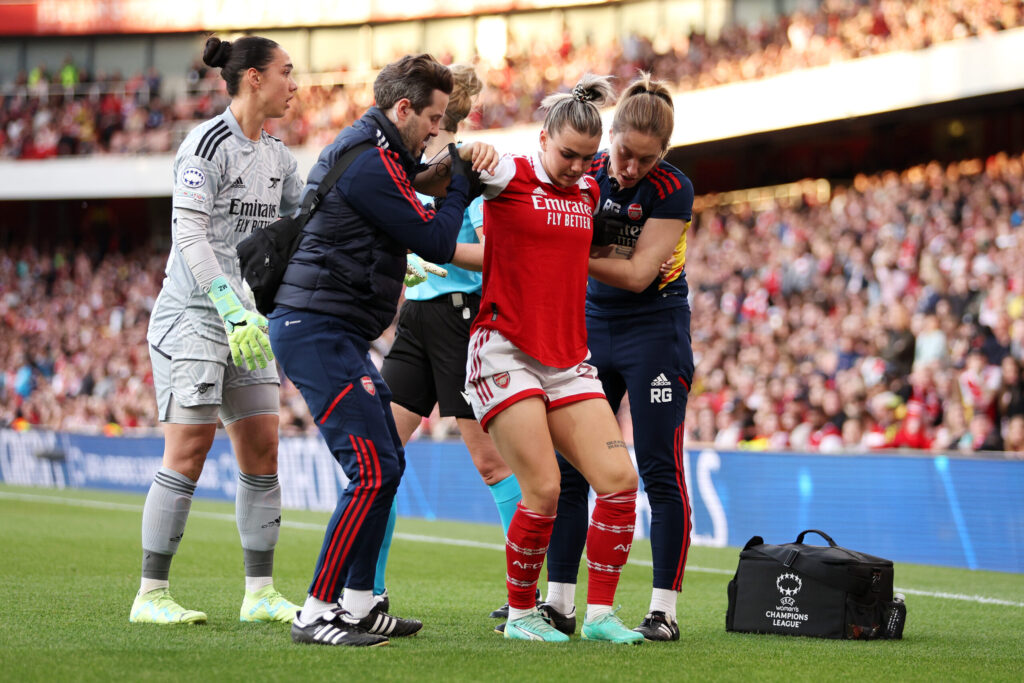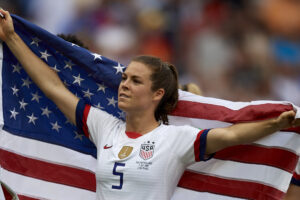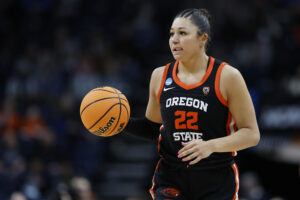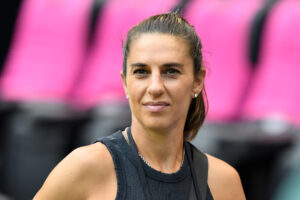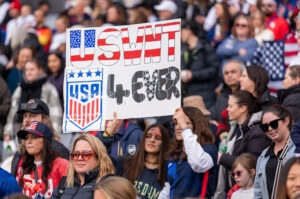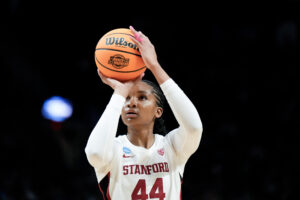Toni Pressley is a defender for the Orlando Pride of the NWSL and a breast cancer survivor. As part of Breast Cancer Awareness Month, Toni has partnered with Chestee to create a limited-edition sports bra which benefits Libby’s Legacy Breast Cancer Foundation.
JWS spoke with Toni and Nicole Biscuiti, Chestee’s Founder and CEO, about Toni’s journey, their collaboration together, and what they’re doing to raise awareness this October.
You can shop the new Toni Tribute Bra from Chestee here.
TONI PRESSLEY, ORLANDO PRIDE
For those that don’t know, do you want to give a quick summary of your story, from when you were diagnosed until today?
Our team nutritionist came in to speak to us about her experience with breast cancer, and she reminded us to be regular with our physical checkups. At the time I was already kind of feeling different in my body. I was noticing a small lump, tenderness, and soreness. I made an appointment with my gynecologist and asked if I could please get a mammogram, because at that point I just needed to know and get a peace of mind either way.
After a month and a half or so going through different appointments last season — doing the mammogram, a biopsy, doing an MRI — it was determined that I had breast cancer. At the time, it was considered non-invasive. But because it was in my milk ducts, I needed a mastectomy.
The day that I found out, there were still some games left in the season. It was tricky to schedule my surgery, quit training, and tell everyone. One of the hardest parts was telling my coaching staff and my teammates that I have breast cancer, need to get surgery, and wasn’t sure when I’d be back. It was pretty emotional.
After my surgery, I ended up having my final diagnosis of stage one breast cancer. They did find a small amount of invasive cancer. I needed to focus on recovery, but since I didn’t need chemo or radiation it could happen pretty quickly.
I soon asked myself: “Okay. Well, how do I get back on the field as quickly as possible and in the safest way possible?” About two weeks later, I was at training again on the sidelines, which was nice because, as an athlete, it was torture being told not to do anything. And then, maybe a month later, I was able to rejoin team training.
At our final game, which happened to be a breast cancer awareness game, I was able to get in as a sub, which was surreal. I didn’t know joining a game would even present itself as an opportunity that season.
My doctors did such a great job of making me feel comfortable removing the cancer and helping me monitor my path right now with medication. My reconstructive surgeon kind of guided me through the whole process. They all gave me a peace of mind. It was helpful to know I was cared for and doing the right things. I don’t think I was too stressed. In addition, the club and our strength and conditioning coach helped me return to fitness after recovery.
It's been one year since @Toni_Deion made her return to the pitch after beating breast cancer. pic.twitter.com/TQ8xY0BmEr
— Orlando Pride (@ORLPride) October 12, 2020
It has been almost a year since you returned to play after your diagnosis of breast cancer and your surgery. Can you put into words how your life has changed in the last 18 months or so?
The biggest change for me is more mental rather than physical. For example, I don’t really waste opportunities, or take things or people for granted. I know that can sound so cliche, but I think this has become more important for me.
How do you think that mental shift has impacted your soccer career?
I try to remain in the moment as much as possible and try not to think too much about the future. While setting goals for the future is important, I find that I tend to forget about the present moment and make the most of being present with people.
At the end of the day, I know playing soccer is a job. We’re all here to perform, do our best, and do well. That’s why we’re paid to be here. But I also don’t want to miss out on other opportunities that soccer provides us. When you’re always trying, always looking to perform towards something, and looking forward to future games, I think we can kind of get lost and not really focus on what we’re doing in the moment.
Do you feel obligated to now share your experience on the chance it could lead someone to make that trip to the doctor?
I definitely have a platform to use to help people to be more aware of their bodies, themselves, and the importance of their health. Going to the doctor regularly, sooner rather than later, is always important. For breast cancer, we’re not really told to go get a mammogram until you’re 40, but women in their 20s are getting diagnosed. It’s important we make more people aware and educated that “hey, it can happen to anyone.”

You are doing an awesome collaboration with Chestee for Breast Cancer Awareness month. Where did the idea come from to work with Chestee on a custom bra?
I really liked the work that Chestee was doing. And when I brought up the idea of collaborating to Nicole, she was very open to it. She’s so well established in the athletic world and doing so well with her company and its great products. I just wanted to jump on board and see if we could help at least one person in any way we could. She was willing to collaborate and make this special edition bra with proceeds going towards a nonprofit. I’m so fortunate that she was willing to be a part of that.
You had the chance to design your own Chestee top. What was that experience like?
It was awesome. It’s a swim top as well. I really liked this design and I was like, “Hey, what do you think about making this bra a neutral color? Like a black or a white or something. And then the tie in the back could be pink, like a breast cancer ribbon.” I’m excited to see the final product out in the world.

You’re giving your portion of the profits to the Libby’s Legacy Breast Cancer Foundation. Can you talk a little bit about the foundation and why you chose to donate there?
Libby’s Legacy is wonderful because they absolutely advocate for anyone who needs help in getting doctor’s appointments or support with medical expenses. I chose them because they’re helping real people in real time. You never want someone to not be able to get the care they need because they can’t afford it, they don’t know the right things to say to doctors, or they don’t have people advocating and guiding them with this whole process, which is scary.
NICOLE BISCUITI, CHESTEE FOUNDER AND CEO
Can you just give a quick introduction of Chestee and how the product and company came about?
I’ve been an athlete almost my entire life really. Growing up, I was always outside playing. I was that kid who you had to hose off in the driveway before coming into the house for dinner, because I would just track mud everywhere from playing with my hands and my feet in dirt. In college, I played basketball as a walk-on. I was a runner, and I also started weight-training while I was doing all those team sports. After college, I found CrossFit and ended up being pretty decent at it, so I started competing at a pretty high level.
It was at an event called Wodapalooza (W-O-D for “workout of the day”) where I came up with the concept of the Chestee. I was doing a workout using a 145 pound barbell, which at the time was my body weight. It was very heavy, and the barbell was sitting in the Miami sun outdoors. As soon as my skin touched the barbell, I literally contact-burned myself a bit.
I took my shirt off and stuck it into the straps of my sports bra in the front, kind of like a backward cape, to create a barrier between my skin and the barbell. That was my aha moment.
The following week I went into the gym and I took a pair of compression knee sleeves, cut them in half, and sewed them into a rash guard that’s used for surfing, which was the tightest, most form-fitting shirt that I could get my hands on at the moment. That was the first unofficial prototype of the Chestee. I wore it for a couple of front squats and it felt really good. The barbell landed on my neck and like it was landing on pillows.
But that unofficial prototype was really ugly. It wasn’t something I’d be proud of. I started talking to everyone I knew who was in the garment industry — seamstresses, people who worked at manufacturers, fashion designers, people who produced fashion shows — and tried to get it to the right place. That process took years. But we’re here today. It’s pretty awesome.
How did you first get connected with Toni and what made you guys interested in doing a collaboration with her?
I’ve always been into soccer and female athletes. Through a mutual contact, I ended up finding Toni’s social media page and started following her. I liked what she stood for. It was very clear she was a strong, resilient, and interesting woman. She’s super accomplished yet very humble.
I reached out one day and said, “Hey, I love what you’re doing. I’d love to send you a Chestee. This is my product. This is what it does. Let me know what you think.” And she was like, “Cool, great.” She posted about the package.
She told me later she really liked the product but she didn’t necessarily find a need for the collarbone protection all the time in her sport. The conversation then shifted to the design and how she visualized the design for female soccer players.
Ultimately, the conversation went to “Well, how would you like to do your own line?” Our first real project is this Chestee that she designed. We took a core item and redesigned it so it would be more approachable for any athlete, regardless if they train with a barbell or not. To give a nod to Breast Cancer Awareness and Libby’s Legacy, she wanted to make all the accent colors this bright fuchsia.

What has made working with Toni different than other athletes you’ve worked with?
Toni isn’t about Toni: She is about helping everybody out. It’s a quality you don’t encounter every day, and particularly not what you always encounter from an elite athlete. She’s strong but gentle. She knows what she stands for but not aggressive. She’s really collaborative.
When we were talking about Libby’s Legacy, she asked me how it would work and how we could best support the cause. When we finally discussed the profit sharing model with her, she said, “Oh, I don’t want anything for doing this. Actually, if it’s okay with you, would you be willing to take the portion of the proceeds that you would normally give me and give it to the charity instead?” At that moment I literally got goosebumps. I said, “Absolutely. We can do that. Yes.” And at that moment, I just thought, “Wow, I hope I get to work with her for a really long time, because this isn’t a everyday thing where you meet people like this.”
What are your hopes for this collaboration in terms of spreading awareness during Breast Cancer Awareness month?
Toni and I both want to support women. We are telling the story of a female athlete and a cancer survivor who hasn’t been out of this for very long. We also want to spotlight Libby’s Legacy Breast Cancer Foundation, which is a small, grassroots, and tightly-run organization that needs and can use every single dollar very wisely.
